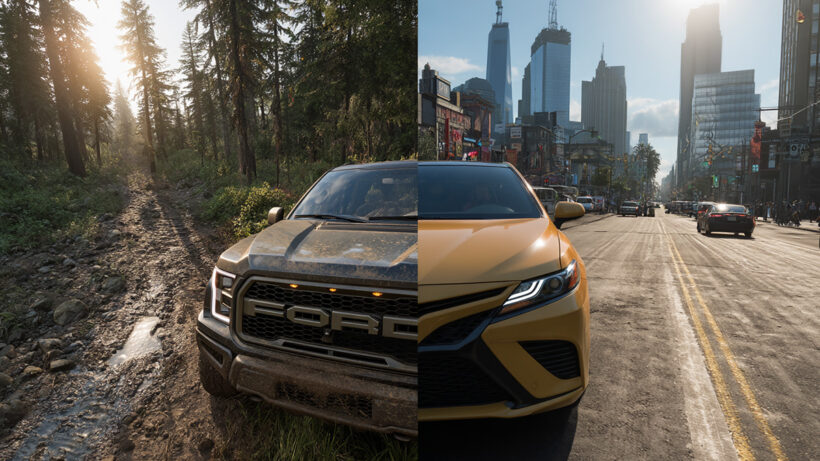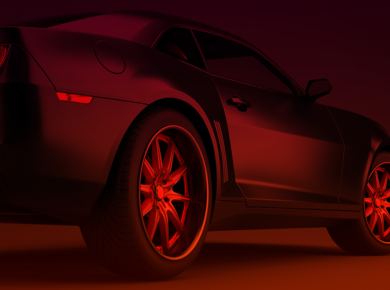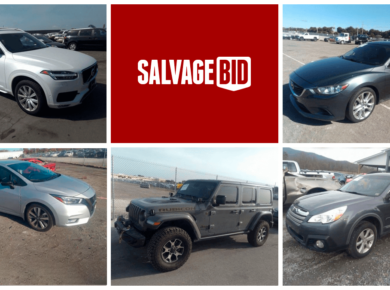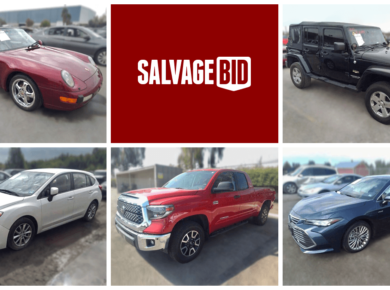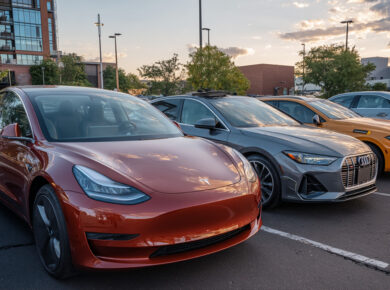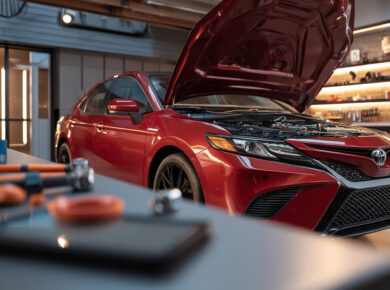Choosing the right SUV can feel overwhelming. With so many models and features available, knowing where to start is tough. Whether you’re a weekend adventurer or a city commuter, the SUV you drive should match your lifestyle.
In this guide, we’ll compare sport utility vehicles for off-road and city use. We’ll look at how different features impact performance, comfort, and cost. By the end, you’ll know what to look for, whether you’re hitting the trails or cruising the city streets.
City Driving: What Matters Most?
If you live in the city, your driving experience likely includes traffic, tight parking spaces, and stop-and-go driving. This means your ideal SUV needs to be efficient, easy to handle, and practical for daily use.
Fuel Efficiency and Size
In urban areas, fuel economy is a top concern. A fuel-efficient SUV can save you hundreds of dollars each year. Smaller vehicles also tend to get better mileage. For example, a compact SUV like the 2025 Subaru Forester with hybrid powertrains offers excellent city fuel economy while still giving you flexibility.
Comfort and Convenience
City drivers spend a lot of time in their vehicles. Look for SUVs with climate controls, good visibility, and user-friendly technology. Features like an SUV with heated seats or an SUV with a sunroof can improve comfort and convenience, especially during cold or sunny days.
Maneuverability and Parking
City driving means navigating narrow streets and parallel parking. Models with smaller footprints, backup cameras, and sensors make driving and parking less stressful.
Off-Road Driving: What You Need
Off-roading is all about durability, capability, and freedom. If your idea of a good time includes dirt roads, mountain trails, or camping trips, you’ll want an SUV that’s built for more than paved roads.
Ground Clearance and Traction
The best off-road vehicles have high inches of ground clearance and a solid wheel drive system. An SUV with 4WD or AWD gives better grip on rough terrain. A rugged SUV like the Jeep Wrangler or Toyota 4Runner handles mud, rocks, and snow with ease.
Towing and Cargo Room
Planning a road trip or carrying gear? You’ll want an SUV with towing capacity and plenty of cargo room. Roof racks, fold-down seats, and multiple storage options make it easier to pack for adventure.
Comfort for the Journey
Just because you’re going off-road doesn’t mean you need to sacrifice comfort. Look for features like an SUV with leather seats and multi-zone climate controls. You can still enjoy a smooth ride even when the road gets rough.
Comparing SUVs: How to Choose
There’s no one-size-fits-all when it comes to choosing an SUV. Here’s how to break it down depending on your needs.
1. Lifestyle Fit
If you’re driving to the office and picking up groceries, something light and efficient will do. If you’re planning camping trips, choose a vehicle with solid road ability and storage.
For example:
- An SUV for camping might include roof rails, AWD, and strong engine options.
- An SUV for snow benefits from AWD and heated mirrors for slippery conditions.
2. Passenger Needs
Think about who’s riding with you. An SUV with a third row is great for large families or carpooling. If comfort is your priority, an SUV for seniors might include easier entry, soft suspension, and clear dashboard displays.Also, consider the row of seating. Do you need a third row occasionally or all the time? Models with foldable seats offer flexibility.
SUV Sizes: Compact, Midsize, and Full-Size
Let’s compare SUV sizes so you know what each class offers.
Compact SUVs
Best for: City driving, couples, small families
Strengths: Easy to park, affordable starting price, high fuel efficiency
These models often include hybrid powertrains and are fun to drive in urban environments. The 2025 Subaru Forester is a solid example.
Midsize SUVs
Best for: Growing families, weekend trips
Strengths: More cargo room, higher comfort, better engine options
In a mid-size SUV comparison, models like the Honda Passport or Ford Edge offer strong performance without the size of a full SUV.
Full-Size SUVs
Best for: Towing, off-roading, large families
Strengths: Space, strength, turbocharged engines, luxury features
These are ideal for those who prioritize power and size. Many full-size SUVs offer robust towing abilities and luxury options.
SUV Models and Brands to Know
You’ll find a wide range of SUV brands offering something for everyone. Whether you’re looking for luxury or practicality, the options are endless.
Here’s a quick look at some standout features across all SUV models:
| Brand | Known For | Notable Feature |
| Subaru | Safety, AWD | Great for snow and daily driving |
| Toyota | Reliability | Strong resale value |
| Jeep | Off-road ability | Iconic rugged SUV design |
| Honda | Value | Smooth driving experience |
| Ford | Versatility | Wide range of engine options |
Looking to compare SUV prices? Start by checking the base price and see what features are included. Then compare upgrades to find the right value.
Using a Comparison Chart
An SUV comparison chart can help you quickly see the differences between models. Look at:
- Starting price
- Engine specs
- Drive-type (FWD, AWD, 4WD)
- Cargo space
- Seating capacity
This makes it easier to compare SUV models side by side and decide what matters most to you.
Luxury or Practical?
Luxury SUVs have a lot to offer—from high-end interiors to advanced tech. In a luxury SUV comparison, you might see features like:
- Leather and heated seating
- Panoramic sunroofs
- Premium audio systems
- Adaptive cruise control
But don’t overlook value-focused models. Some mid-range SUVs offer many of the same perks at a lower cost. A well-equipped SUV by price search will show you surprising options.
Don’t Forget the Extras
Small features can make a big difference. Want more utility? Look for an SUV with a roof rack. Need better grip? An SUV with AWD handles rain and snow well.
Other handy extras include:
- USB ports for all rows
- Rearview cameras
- Blind-spot monitoring
- Split-folding seats
Even SUVs with good mileage can come loaded with features when you shop smart.
Compare and Shop Smart
When you’re ready to buy, compare SUVs across different categories. Think about:
- What you need every day vs. occasionally
- Which features are must-haves
- Which models hold value over time
Make sure to compare SUV models, not just by size but also by drive type, features, and starting price. Use Salvagebid’s listings to explore SUV comparison tools and view vehicles by make, model, or feature set.
You can also use Salvagebid to browse a list of SUVs based on:
- Year (like the 2025 model year)
- Mileage
- Condition
- Drivetrain
- Location
Conclusion: What’s Right for You?
So, which SUV should you choose, an off-roader or a city-friendly ride?
If you’re driving mainly in town, prioritize a smaller, fuel-efficient SUV that’s fun to drive. Look for tech features that make city driving easier, and don’t overlook comfort.
If adventure is your goal, pick an SUV with towing capacity, high inches of ground clearance, and a capable wheel drive system. Make sure it’s road-capable on all terrains and comfortable enough for long road trips.
Still unsure? Use Salvagebid’s search tools to compare sport utility vehicles and find something that fits your needs and budget.
Whatever your lifestyle, there’s an SUV out there built for it. Whether you want an SUV with heated seats for the winter, an SUV with a third row for the family, or an SUV for camping on the weekend, you’ll find the right match by taking the time to compare.
Frequently Asked Questions (FAQ)
What’s the difference between AWD and 4WD?
AWD (All-Wheel Drive) powers all four wheels all the time and adjusts power automatically based on road conditions. It’s great for city drivers who face occasional rain or snow. An SUV with AWD is typically more fuel efficient than 4WD.
4WD (Four-Wheel Drive) is usually found in off-road or rugged vehicles. It offers better traction on rough terrain and is often manually activated. An SUV with 4WD is better for drivers who frequently go off-road or live in extreme weather areas.
What SUV is best for snow?
A good SUV for snow has AWD or 4WD, good ground clearance, heated seats, and winter-ready tires. Models like the Subaru Outback, Jeep Grand Cherokee, and Toyota RAV4 AWD editions perform well in snowy conditions.
Is a compact SUV big enough for a family?
Yes, many compact SUVs are great for small families. They often have two rows of seating, decent cargo space, and good safety ratings. However, if you need room for more than five people or lots of luggage, consider a midsize or an SUV with a third row.
Which SUV has the best cargo room?
Many full-size and midsize SUVs offer excellent cargo room. If you’re planning camping trips, an SUV for camping with a fold-flat second and third row is a good option. Some compact models also have creative storage layouts that maximize space.
What is the most fuel-efficient SUV?
A fuel-efficient SUV often includes hybrid powertrains or smaller turbocharged engines. Some top-rated models include the Toyota RAV4 Hybrid, Honda CR-V Hybrid, and Hyundai Tucson Hybrid. These combine good mileage with strong road ability.
Should I buy a luxury SUV or a standard one?
This depends on your budget and needs. In a luxury SUV comparison, you’ll find high-end features like leather interiors, sunroofs, and advanced safety tech. But many non-luxury SUVs now offer similar features in their higher trims, making it possible to get great value without the luxury badge.
Is a sunroof worth it?
An SUV with a sunroof adds natural light and airflow, which some drivers enjoy. However, it may slightly reduce headroom and increase cost. It comes down to personal preference—some love it for city cruising or scenic road trips, while others don’t mind skipping it.
Can I find SUVs with good towing capacity?
Yes, many SUVs on the market offer impressive towing capacity, especially in the midsize and full-size classes. Look for models with strong engine options and features like trailer sway control. Ford Explorer, Chevy Tahoe, and Toyota 4Runner are great examples.
Are SUVs good for seniors?
Yes, an SUV for seniors typically includes features like a higher seating position, wide-opening doors, soft suspension, and easy-to-use controls. Look for models that offer safety tech and visibility aids like blind spot monitoring.
Where can I compare different SUV models?
Use online tools to compare SUV models and compare SUV prices. You can also visit Salvagebid to see listings and an SUV comparison chart that includes details like base price, drivetrain, seating, and features. This will help you make an informed choice based on your lifestyle and budget.
